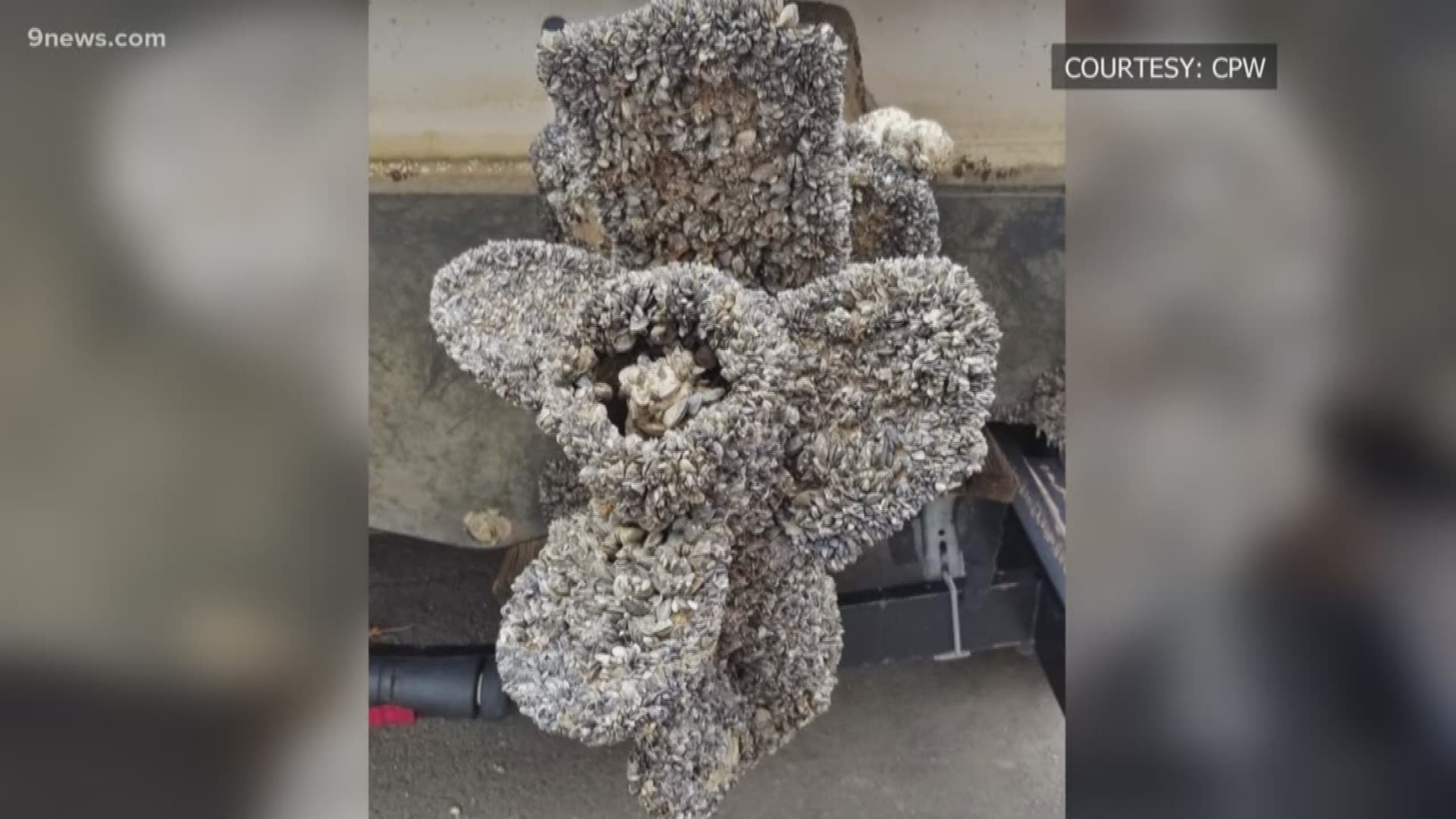COLORADO CITY, Colo. — Boats infected with mussels are a thing in Colorado — even more so than last year.
That's according to Colorado Parks & Wildlife (CPW), who said inspectors have already found as many boats with the invasive creatures so far in 2019 as they did in the entire 2018 boating season.
"I am just being completely over-run by mussel-infested boats,” said Robert Walters, CPW’s assistant manager for the aquatic nuisance species program.
Walters said his team has intercepted 51 boats so far this year.
"We are having interceptions just about every day at waters throughout the state," Walters said.
Mussels consume plankton, meaning they disrupt the food web and out-compete sport fish and native fish. They also clog infrastructure, including reservoir dams, outlet structures and distribution systems that carry water for irrigation, municipal and industrial uses. Mussels also infest boats and damage engines.
Most of the problematic boats are coming out of Lake Powell, a reservoir on the Colorado River that straddles the border between Utah and Arizona, CPW said.
Colorado's reservoirs do not have mussels, and an infestation could be "devastating" for reservoirs and water-based recreation.
Kirstin Copeland, manager at Ridgway State Park, said the companies and organizations that own most of Colorado’s reservoirs could shut down all water-based recreation.
“They are concerned about potential damage to their infrastructure,” Copeland said. “They could say no to all boating.”
In 2018, 51 boats with adult mussels were found at inspection stations, more than the previous record of 26 boats in one year.
CPW asks boaters to clean, drain, dry and disinfect their boats before traveling to any reservoir in Colorado, especially when boats are brought in from out-of-state.
Since the Aquatic Nuisance Species (ANS) program started in Colorado in 2008, CPW staff and other entities have completed nearly 4.5 million boat inspections, more than 90,000 boats have been subject to decontamination procedures and more than 200 vessels with confirmed mussel infestations have been intercepted and decontaminated.
SUGGESTED VIDEOS | Local stories from 9NEWS

